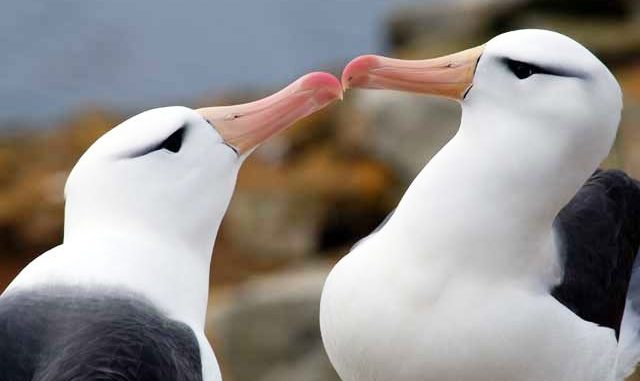
STANLEY – The humble jellyfish has been found to be a major source of food for albatrosses which inhabit the Southern Ocean, new research has discovered.
Institute of Marine and Antarctic Studies researcher Julie McInnes analyzed scats from 1460 breeding sites of the black browned albatross from far flung places including Falkland Islands, South Georgia, Macquarie Island, Kerguelen in the Indian Ocean and Albatross Island in Chile.
“Jellyfish have traditionally been regarded as an unlikely food source due to their poor nutritional value, although sightings of albatross eating jellyfish are occasionally made,” she said.
Top predators such as the albatross are indicators of the health of the broader marine ecosystem and the abundance and distribution of species.

“We need to understand what albatross eat so we can identify how marine ecosystems might be changing in response to pressures such as climate change or fishing,” Ms McInnes said.
Past studies of albatross diets relied largely on analysis of stomach contents.
“Jellyfish were found in less than one in five samples and then only in low volumes of around 5% of the total,” she said. “By contrast our study found jellyfish are a common prey of black-browed albatrosses and the closely related Campbell albatross.
“While there was a large variation between breeding colonies, jellyfish were present at seven of the eight sites sampled and in 37% of the scats tested, comprising 20% of the DNA sequences identified.
Ms. McInnes said adult albatrosses were feeding jellyfish to their chicks.
“We were surprised because we had expected adults would prefer fish to low energy-value jellyfish when feeding their offspring,” she said.—MercoPress



